Power Up Your Devices with the Perfect Aux Cable
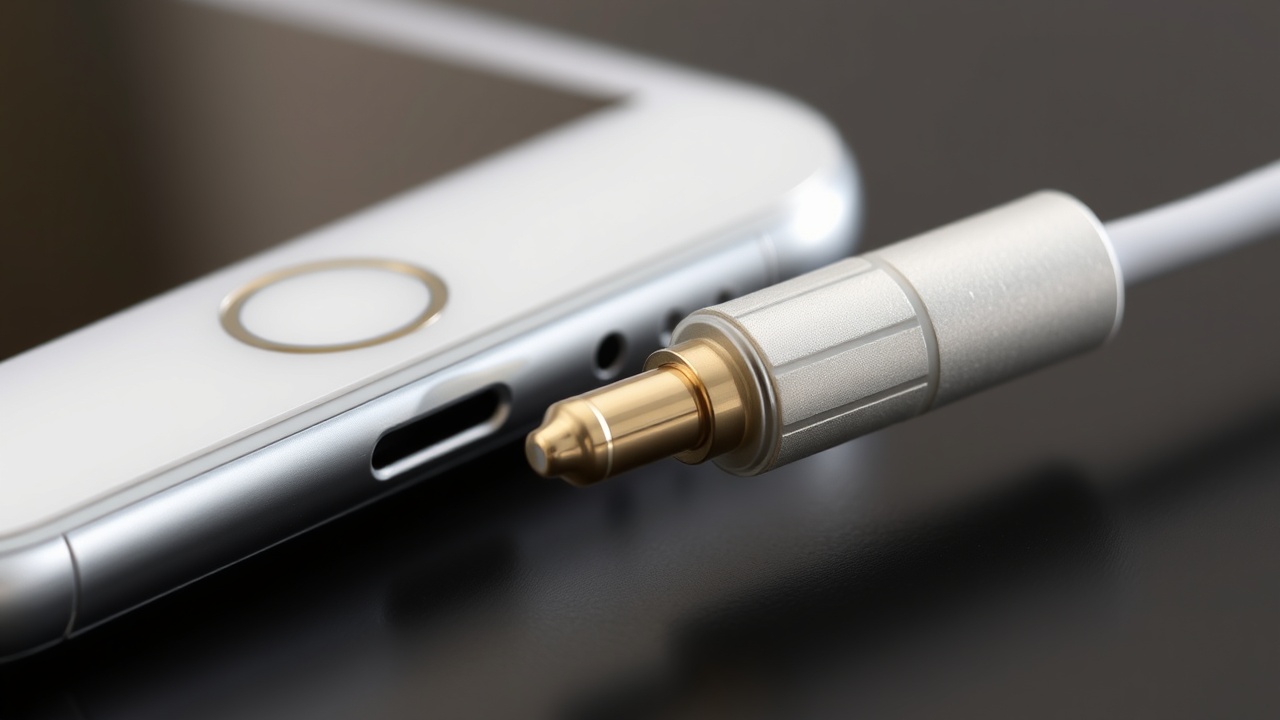
In today's world of portable audio devices, the trusty aux cable remains a steadfast companion. Whether you're looking to connect your smartphone to your car stereo or link your MP3 player to a speaker, the aux cable provides a simple and effective solution for sharing your favorite music. This article provides a comprehensive guide to aux cables, exploring their functionality, diverse types, and how they can enhance your audio experience. Understanding the nuances of different aux cords will empower you to choose the perfect cable for your specific needs, ensuring optimal sound quality and a seamless connection every time.
Understanding Aux Cables
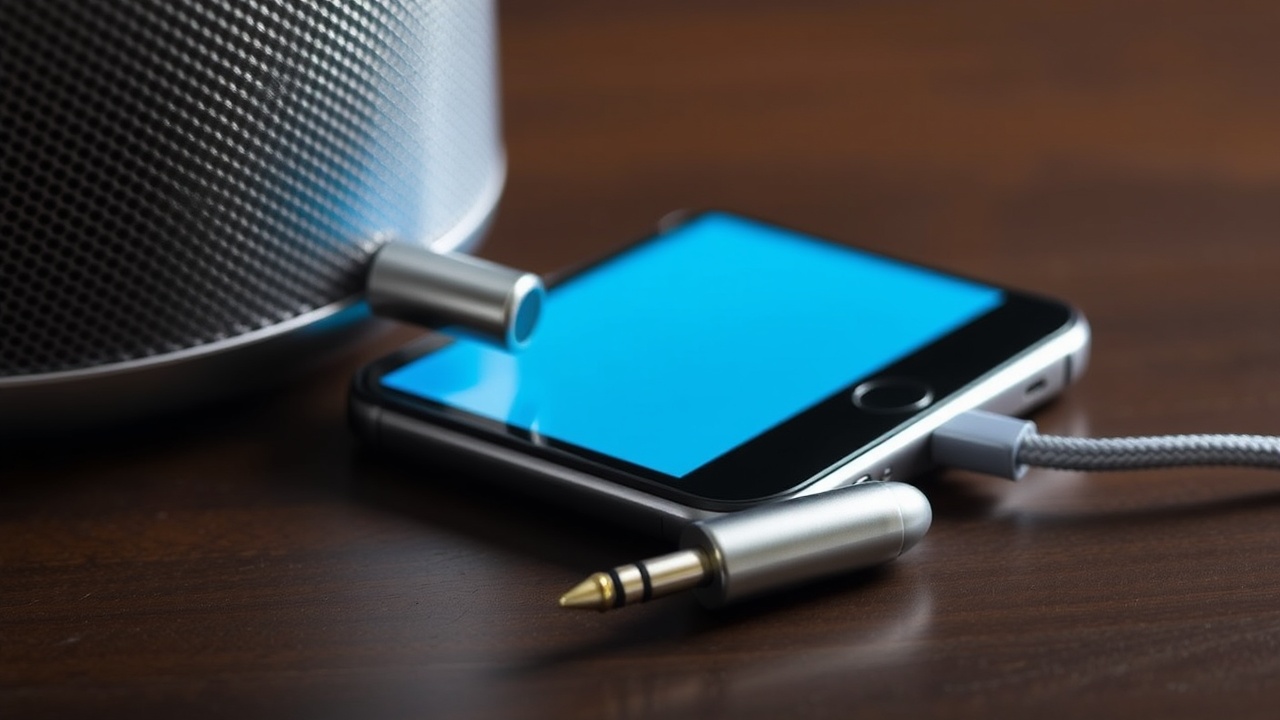
What is an Aux Cable?
An aux cable, short for auxiliary cable, is an audio cable that allows you to connect various audio devices together. Typically, an aux cord utilizes a 3.5mm connector, also known as a headphone jack, making it compatible with a vast array of devices such as smartphones, MP3 players, tablets, and even computers. The primary function of the aux cable is to transmit audio signals from one device, such as an iPod, to another, such as a car stereo or a speaker. These cables are essential for creating a direct, analog connection that bypasses wireless technology, offering a reliable and often superior sound quality for your music.
Types of Aux Cables
The market offers a variety of aux cables to cater to different audio needs. Several types are available, including:
- The standard 3.5mm audio cable, perfect for connecting headphones or portable audio devices to devices with a corresponding 3.5mm jack.
- Auxiliary cables with RCA connectors on one end, useful for connecting devices like MP3 players or smartphones to older stereo systems or speakers.
For professional audio setups, you might encounter 6.35mm cables, often used with instruments and studio equipment. Moreover, there are TS and TRS cables, each designed for specific audio applications, affecting the way sound is transmitted and perceived. Choosing the right type ensures compatibility and the best possible audio experience.
How Aux Cables Work
Aux cables facilitate audio transmission through a simple yet effective mechanism. The aux cable creates a direct, physical connection between two devices, allowing analog audio signals to flow freely. When you plug a 3.5mm headphone cable into your smartphone and a speaker, for example, the cable carries the electrical signal representing the audio from your phone to the speaker.
The speaker then converts this electrical signal back into sound waves, enabling you to hear your music. The quality of the aux cable, its shielding, and the materials used in its construction can all impact the sound quality, ensuring a clear and high-quality audio experience free from interference or distortion. Loadbasket.com and other manufacturers like them create high-quality cords that are durable and provide a high level of signal integrity.
Choosing the Right Audio Cable
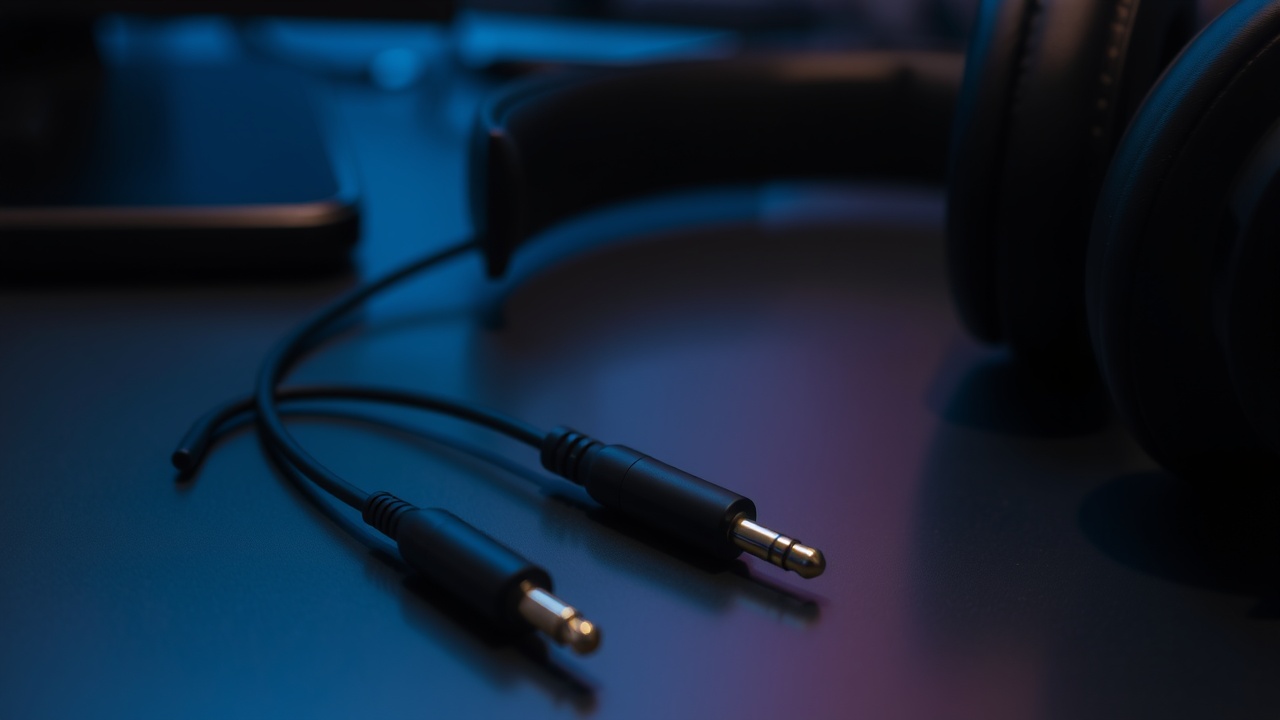
Factors to Consider
When selecting the right aux cable, several factors come into play. You should consider factors such as:
- Build quality, as this directly impacts durability and sound transmission.
- The specific devices you'll be connecting, ensuring compatibility with the appropriate jacks or connectors.
The length of the aux cable is also crucial, depending on the connection distance needed. The cable's flexibility and the design of the connectors are also important for ease of use.
3.5mm Audio Specifications
The 3.5mm audio jack has become the standard connector for most portable audio devices. This mini jack, also known as a headphone jack, allows for a convenient and reliable connection for headphones, speakers, and car stereos. Different 3.5mm headphone cables and 3.5mm stereo audio cable variations exist, including TS and TRS configurations, each affecting how audio is transmitted.
The 3.5mm jack cable can transmit stereo audio, providing a left and right channel for a richer listening experience. High-quality 3.5mm audio cables are designed to minimize signal loss and interference, ensuring that you get the best possible sound from your devices. Choosing the right 3.5mm aux cable is essential for optimal audio performance.
Benefits of Slim Aux Cables
Slim aux cables offer advantages in tight spaces and reduce strain on device jacks. Their flexible design makes them ideal for use in tight spaces, such as in a car stereo console or behind a crowded studio setup. The slim profile reduces the strain on the 3.5mm jack on your devices, preventing potential damage from bending or excessive pressure.
Despite their slender build, many slim aux cables are engineered with high-quality materials to ensure excellent audio transmission and durability. They are particularly useful for mobile users who need a lightweight and easily portable solution for connecting their smartphones, MP3 players, or tablets to speakers or headphones. loadbasket.com makes a number of slim cables, and it is important to compare the price and feature differences between aux cables from different brands. The slim design also makes them visually appealing and less obtrusive in various settings.
Top Aux Cable Products
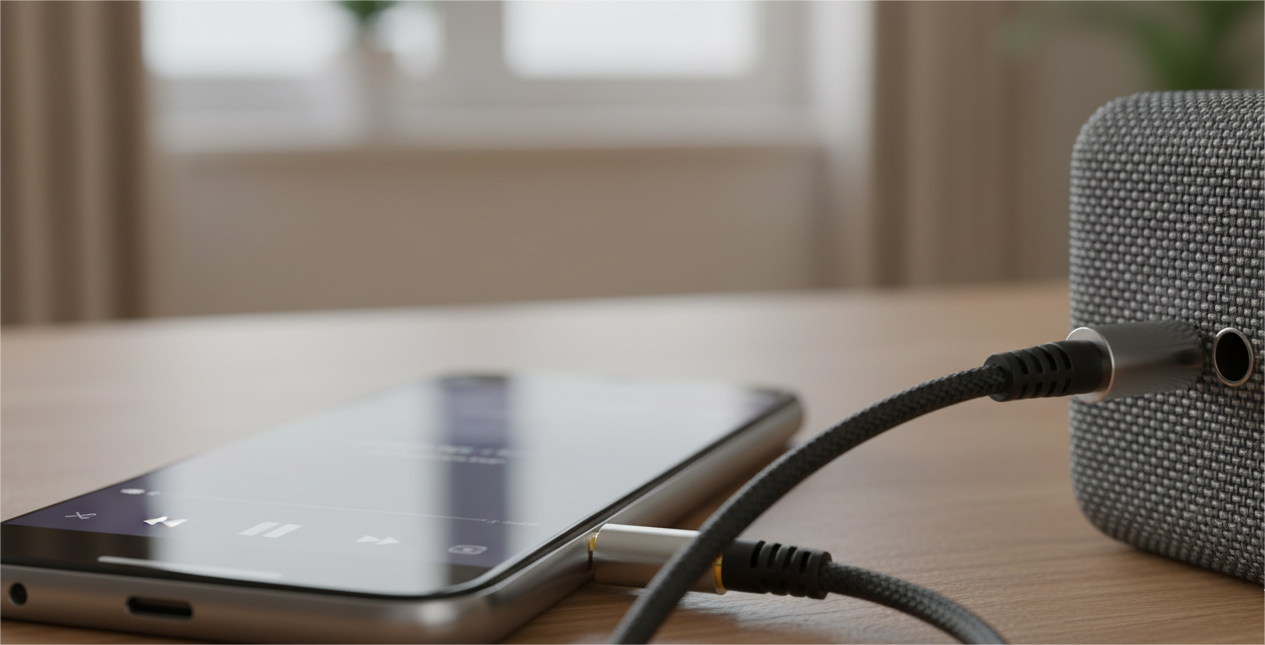
loadbasket.com Aux Cables
loadbasket.com offers a comprehensive range of high-quality aux cables for diverse audio needs. Their product line includes standard 3.5mm audio cables, slim aux cables, and specialized cables designed for pro audio setups. Many of their 3.5mm headphone cables feature robust connectors and shielded designs to minimize interference and ensure clear sound transmission.
loadbasket.com's aux cords are available in various lengths, including the popular 1m aux cable, making them compatible with a wide range of devices, from smartphones and MP3 players to car stereos and studio equipment. Their slim aux cable designs areet.com particularly popular for mobile users, providing a flexible and durable solution for connecting devices on the go. loadbask.com prioritizes quality and design, offering aux audio cables that deliver exceptional audio experience and long-lasting performance at a reasonable price point.
Comparing Features of Popular Brands
When selecting an aux cable, it's essential to compare features from different brands to find the best solution for your audio needs. Different brands prioritize various aspects. For example:
- Brand A might focus on premium materials and advanced shielding for superior sound quality and minimal interference.
- Brand B might prioritize durability and flexible designs for mobile use.
- Brand C, on the other hand, may offer more affordable options with a focus on compatibility and standard features.
Consider the type of connector (3.5mm, RCA), the length of the cable, and the build quality. For example, some brands offer aux cords with gold-plated connectors for improved signal transfer, while others provide tangle-free designs for ease of use. Evaluate price versus performance to ensure you get the best value and enhance your audio experience with an aux cable. Also, ensure the aux cable connects with devices such as your iPod, iPhone or iPad.
Price Ranges for Quality Audio Cables
The price of a quality aux cable varies depending on brand, materials, and features. Basic 3.5mm headphone cables from lesser-known brands can be found for a few dollars, offering a functional solution for everyday use. Mid-range aux audio cables, typically priced between $10 and $20, often feature better shielding, more robust connectors, and enhanced durability, providing improved sound quality. High-end aux cables, which can cost upwards of $30, may incorporate premium materials like oxygen-free copper and gold-plated connectors for optimal signal transfer and minimal signal loss.
These premium cables are often favored by audio enthusiasts and professionals seeking the best possible audio experience. Consider your specific needs and budget when selecting an aux cord to ensure you get the best value for your money. Remember to compare the benefits of standard cable, slim cable and 1m aux cable. Some DJs even use a specialized 6.35mm aux cable to connect to their mixing set.
Connecting Your Devices
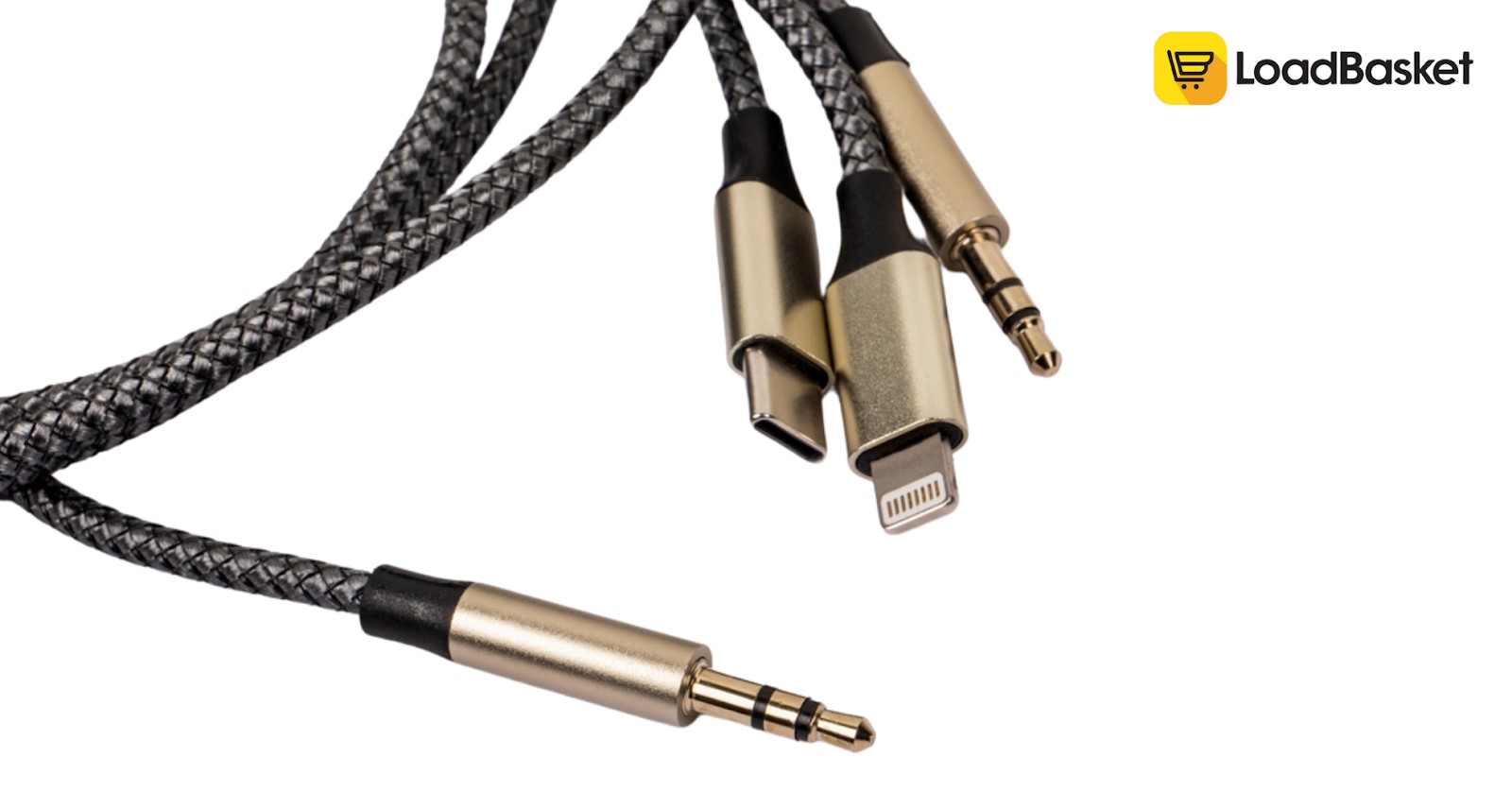
Using Aux Cables with Headphones
Connecting your headphones to various devices is simplified with the use of an aux cable. The 3.5mm headphone jack is the standard for most portable audio devices, making the 3.5mm aux cable a universal tool. Whether you want to listen to music from your smartphone, tablet, or MP3 player, the aux cable provides a direct connection that bypasses the need for wireless technology.
For those seeking enhanced sound quality, choose high-quality cables with robust connectors. Consider a slim aux cable for mobile use, as its flexible design reduces strain on your device’s jack. loadbasket.com and other manufacturers offer a comprehensive range of aux audio cable products designed to enhance your audio experience and keep your headphones connected, ensuring a seamless and immersive listening session whether using an iPod, iPhone or iPad.
Connecting to Stereo Systems
Connecting your devices to stereo systems often requires the versatility of an aux cable, allowing you to connect to systems that may not have Bluetooth connectivity. The 3.5mm jack on your smartphone, MP3 player, or iPod can be easily connected to the RCA inputs on older stereo systems using an aux cable with the appropriate connectors. This provides a direct connection that is often more reliable than wireless options.
Some stereo systems use a 6.35mm connector, so ensure your aux cord is compatible or use an adapter. High-quality audio cables ensure optimal sound, while the right length of the aux cable prevents clutter. Consider the device you are connecting, as the 3.5mm jack is often a standard solution, but other devices may require a different cable.
Troubleshooting Common Issues
Even with their simplicity, aux cables can sometimes present issues, and troubleshooting them effectively ensures a smooth audio experience. One common problem is a loose connection, where the 3.5mm connector is not fully inserted into the 3.5mm audio jack of your device. Ensure the aux cable is securely connected on both ends to maintain a stable audio signal. Another issue can be interference or static, often caused by a damaged or poorly shielded aux cord.
Try a different aux cable, especially one from a reputable brand like loadbaket.com, to see if the problem persists. Sometimes the issue can be a simple matter of volume control on your device or speaker. Checking these common issues will usually solve the problem. Remember, regular inspection of your 3.5mm headphone cable for wear and tear can prevent future disruptions, ensuring a consistent and high-quality sound from your portable audio devices.
Frequently Asked Qestions:
1. What is a 3.5mm AUX cable used for?
A 3.5mm AUX cable is used to connect audio devices like mobile phones, laptops, tablets, car stereos, and speakers. It allows you to play music or audio directly from one device to another with clear sound transmission.
2. Is a 3.5mm AUX cable compatible with all devices?
Yes, most modern devices with a 3.5mm headphone jack are compatible. You can use it with phones (with jack), MP3 players, PCs, car audio systems, Bluetooth speakers, and home sound systems. If your phone doesn’t have a jack, you can use a Type-C or Lightning converter.
3. Does AUX cable quality affect sound?
Yes. A good-quality AUX cable with copper wiring and gold-plated connectors reduces noise, improves clarity, and provides stable audio. Low-quality cables may cause static or weak sound.
4. How long does a 3.5mm AUX cable last?
It depends on usage and build quality. A durable cable with strong connectors, braided wire, and strain relief can last for years. Rough bending, pulling, or twisting can shorten its lifespan.
